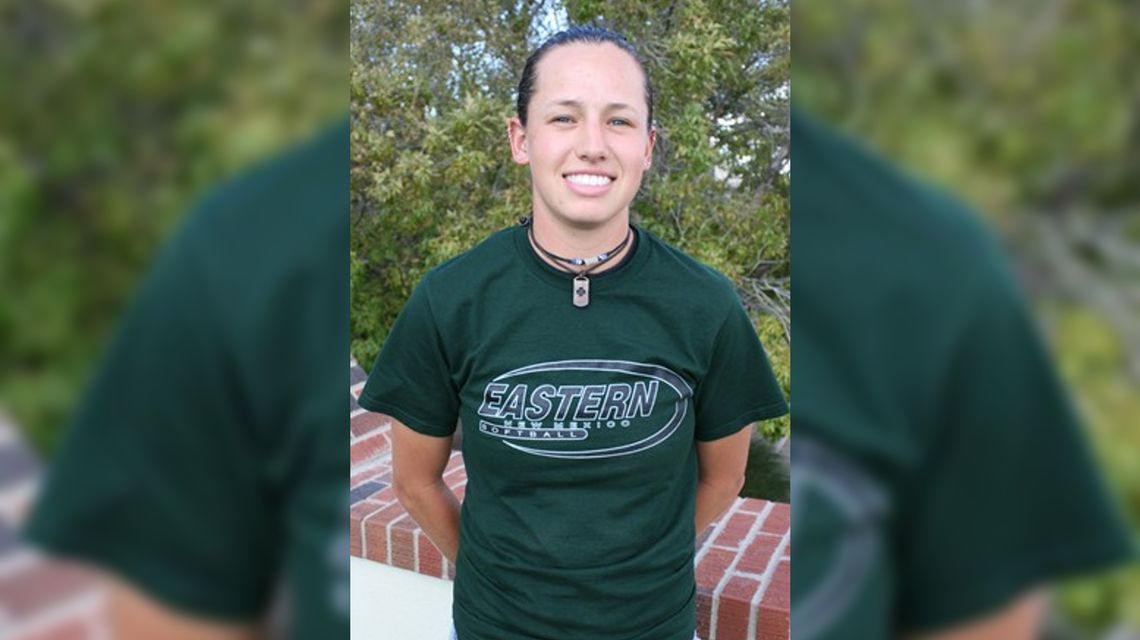
Former Rio Rancho High School standout Jena Rue advises others to seek help after her own battle with anxiety
RIO RANCHO, N.M — “Too many people, I think, are ashamed or afraid to look for help. If you don’t do anything about it, there’s still a problem.” These were the words of Jena Rue. She was a former softball player for Rio Rancho High School. She recently shared her struggles with anxiety and how she overcame it.
To start, she talked about how people missed her battle with anxiety, “To everybody outwardly, I have likely appeared to give off an impression of being this ecstatic outgoing individual — engaging you, making you giggle, and being the focal point of consideration. However, most of the time you’ve been around me in the course of the most recent quite a while, I am very close or almost an uneasiness or fit of anxiety. “
She wrote in a post on her Facebook page, “For years, I have struggled with panic disorder…When I got sober four years ago, I assumed all of my anxiety would subside. As a recovering alcoholic, the physical side of being a recovering alcoholic is mostly just that. No more hangovers; no more collecting thoughts and trying to piece together the night before; no more worrying my family all hours of the night.”
Rue thought this was the last phase of her mental health problems. Unknown to her, it was only the start of another battle, “Sobriety is the greatest gift I gave myself and my family. What I didn’t understand is that my mental health issues were just beginning.”
The freedom from the trap of alcoholism opened doors to her deeply trapped thoughts. Rue wrote, “Feelings I had suppressed for close to seven years with alcohol were becoming louder than ever. I now had nothing but my thoughts, guilt, regrets and feelings of hopelessness as a person.”
She continued, “This is my coming-out story of admitting that I struggle so deeply with anxiety, depression and severe debilitating panic attacks. I feel that for years, I have been closeted by the haunting and debilitating fatigue that coincides with living with panic disorder. I am an over-thinker: I worry about everything. I dream in panic. Most days I am a walking mental ward.”
Rue also opened up on her alcoholism. She said, “I grew up in an alcoholic family; I was the child of an alcoholic.”
But she had softball and her softball coach that gave her purpose.
“Growing up, I did have softball to defer me from getting into trouble with any kind of drugs or gangs. I had Paul (Kohman, Rams softball coach then and now) to (say), ‘You be at class, and if you don’t, there’s consequences for your behavior,’ which flows into the adult world,” she told the Albuquerque Journal.
She had nothing but praise for both softball and her softball coach, “I had a great avenue playing softball,” she said. “I couldn’t be a bigger advocate for him and his program, and how he sets up his student-athletes for life after softball.”
Unfortunately, Rue’s world came crashing after college, “A lot of my emotional issues and regulations started after I quit playing sports (after college) and after I quit having that drive…I feel like for years I wasn’t ‘Jena the softball player’ anymore. I was ‘Jena, go find a job; go start paying off your student loans; go start paying off your credit cards.’”
To compensate for this switch in activities and stress, Rue fell back on alcohol, “So, I started drinking to kind of take the place of, ‘Well, I don’t have practice; I don’t have study hall; I don’t have homework; I don’t have a coach telling me, ‘Don’t go to parties.’…It was daily, after work — I was highly functioning for about six years.”
Eventually, friends and family couldn’t cope with this addiction. “It wasn’t fun for me anymore; it wasn’t fun for friends; it wasn’t fun for family,” she said. “I just felt like a disappointment. I didn’t really have anxiety or panic — any kind of panic — until I stopped the drinking.”
The big break in her journey eventually happened, “I don’t remember much of the day before; I know I had done a day-drink binger,” she remembered. “I was just so depressed at that point, but didn’t know-how to quit, didn’t know what I was going to do. I just woke up Oct. 7 and said, ‘I’m done.’”
This big break was the end of her alcoholism. Rue said, “Six months into my sobriety, I started to feel all this stuff I’d never felt: feelings. I felt sad; I felt like I was missing a friend. I didn’t go to bars anymore; I didn’t go to the liquor section.”
According to her, these struggles seemed elusive to many, “To everyone on the outside, I have probably seemed to appear to be this happy-go-lucky extrovert — entertaining you, making you laugh and being the center of attention…But the majority of the time you’ve been around me over the last several years, I am pretty close or near an anxiety or panic attack. Most of the time, I smile and wave or hide in a bathroom till I’ve returned to homeostasis.”
However, now she strongly advocates for mental health, “help anyone else and be an advocate and remind others you are not alone in this fight for your happiness, mental-health stability and surviving this life.”
Rue eventually questioned herself, “Am I benefiting anyone or myself by not speaking up? Can I help others who may be stuck in the shadows of depression, anxiety and panic? I took a lot of time over the last several days and decided to come out about this and fight for myself and for those who also live with this.”
So, she declared her support for those who were going through similar endeavors, “For years it has always been my intention to inspire and help those that I have encountered during my health care career and also those that have attempted or wanted to get sober, too.”
In her brave words and charge to everyone struggling with their mental health, “Nowadays, there are so many avenues to get help, if people really want to get help.”
This is an unedited user writing submission. The views, information, or opinions expressed in this article are solely those of the author and do not necessarily represent those of Best Version Media or its employees.







